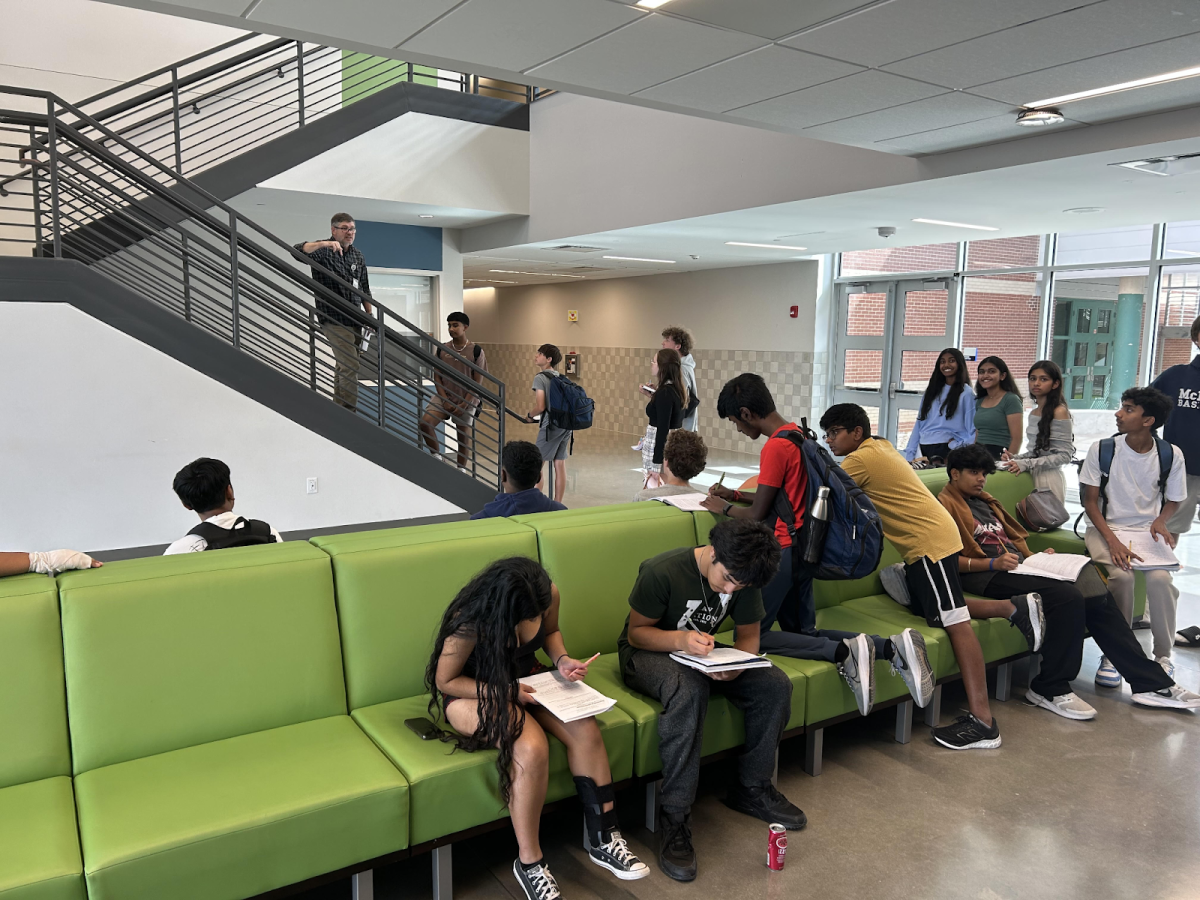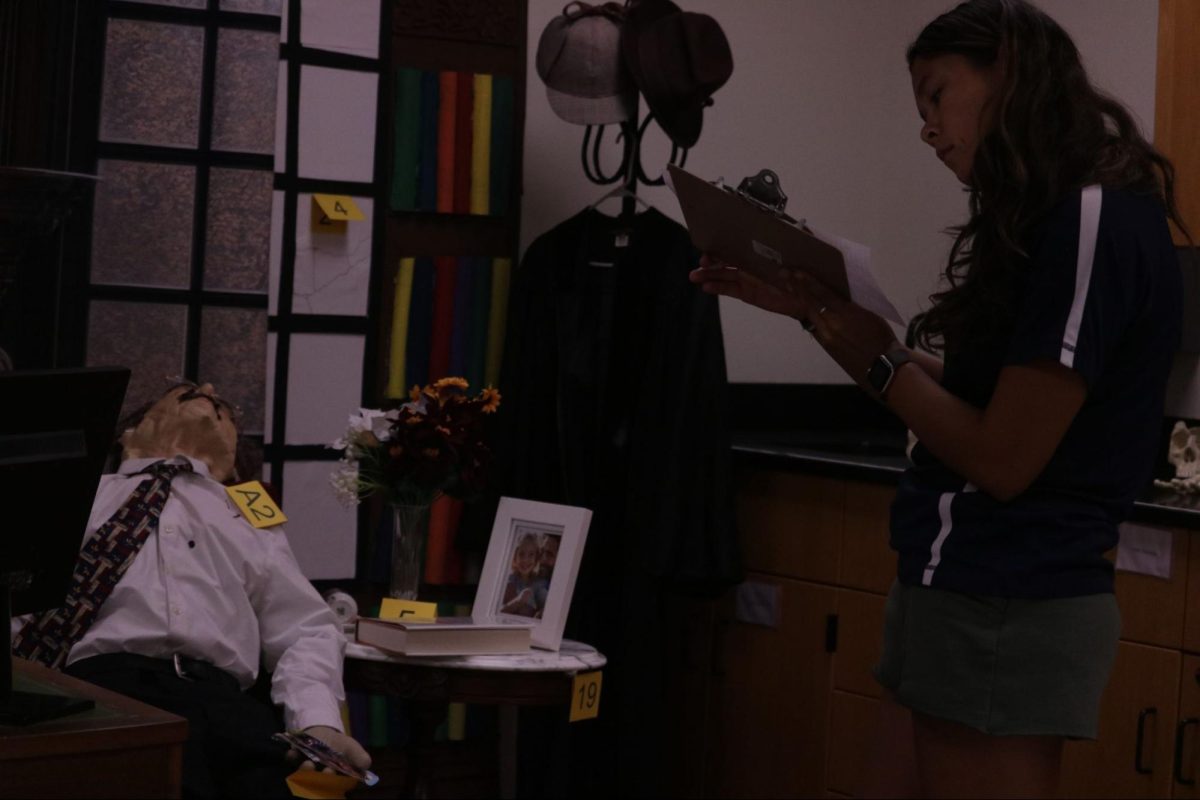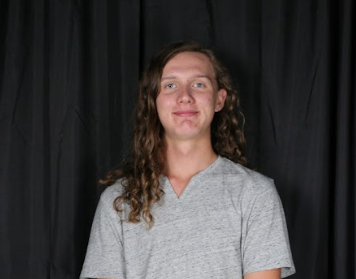AP Human Geography (APHuG) teachers Todd Carpenter and Ash Crane conducted their third Annual School Walk, working to teach their students concepts in their current unit about observing the cultural landscape, a term to describe elements of culture in places.
“Being able to evaluate the cultural landscape is a basic geographic task that APHuG students need to understand because it helps them understand why things are the way they are,” Carpenter said. “Many students are shocked to learn how little they know about the school.”
Throughout the walk, he found that students began to grasp the concept of culture on the landscape.
“When I looked around I saw things like the giant mum, paintings on the wall, but normally when I am trying to get to class I don’t see these things,” freshman Jace Hayes said. “But when I am doing this walk I see these details, they can represent the cultures, the sense of community as you see signs for the clubs and sports.”
During the walk, both teachers would point out their major observations of the school, a notable example is the F Wing furniture, Carpenter pointed out how although the space was meant for “cooperation” and “inclusivity” it has been twisted out of shape by students who instead use the space as “a place to skip class.”
“[In the main hall] there was a flag from a country that was dissolved in the 70s and then one from 2011,” Hayes said. “Teacher Crane told me that it could reflect how the school may have bought them in a bunch, showing that perhaps the country flags that were hung aren’t super specific [to McNeil], that more importance was placed on the flags than their relevance to the school.”
The school walk is intended to teach the students the immediate relevance of the current unit and how the concepts they are learning inside APHuG can be applied in their day-to-day lives.
“[This walk helps students to] pay attention to details, it gets them out there, looking at every small detail so they can understand the cultural elements and what elements are being exhibited that may affect them daily, something they don’t realize,” Carpenter said.














